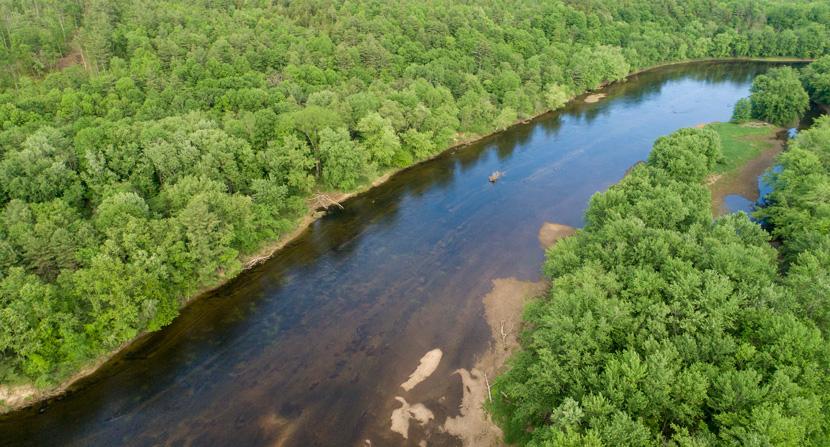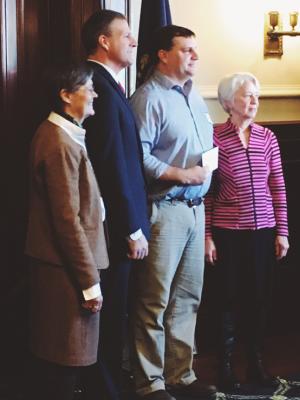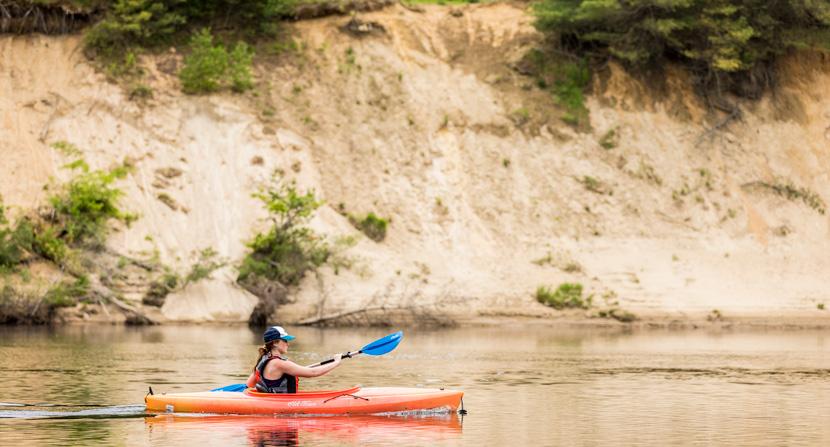$91K award to help conserve Stillhouse Forest along Merrimack River in Canterbury
- Tags:
- Land Conservation

Stillhouse Forest features several exemplary natural communities including significant riverine floodplain forest, numerous vernal pools, oxbows and river bluff communities. Photo by Jerry Monkman/Ecophotography.
Concord - December 07, 2018 –According to local lore, the Stillhouse Forest in Canterbury was a hideout for an infamous gang after the 1950 Boston Brinks heist in which burglars got away with $2.7 million, including $1.2 million in cash. Only $58,000 was ever recovered, leading some to wonder whether there’s still money hidden on the property that the Society for the Protection of New Hampshire Forests (Forest Society) is seeking to conserve with help from the Land and Community Heritage Investment Program.

“We are very appreciative of LCHIP’s investment in Stillhouse Forest and the high conservation values it represents,” said Hotz. “The LCHIP award is a critical component of the funding. It will enable the Forest Society to protect critical wildlife habitat while offering paddlers on the Merrimack River another recreation opportunity.”
The 234-acre Stillhouse Forest features several exemplary natural communities including significant riverine floodplain forest, numerous vernal pools, oxbows and river bluff communities. These areas provide excellent wildlife habitat, and its conservation will also afford protection to water quality and anadromous fish in the Merrimack River.
Once permanently protected, Stillhouse Forest will be open to the general public for passive recreational activities. Given several nearby public boat launches, it is in a unique position to become a paddling destination suitable for picnics, exploration and nature study.

The Stillhouse Forest is one of 42 projects across the state receiving matching grants from LCHIP. Sixteen natural resource conservation projects will be supported by $2 million and 26 historic resource projects will receive $1.9 million, all in matching grants.
The eighteen-member LCHIP Board of Directors selects the grant recipients as the culmination of a rigorous application and review process. According to LCHIP’s Board Chair, Amanda Merrill of Durham, “The LCHIP Board and staff have the responsibility and privilege of helping to protect natural, cultural and historic resources across New Hampshire. It is a pleasure to work with dedicated colleagues from local government, citizens groups and non-profits to preserve the places that make our state special.”
Conservation of land along the Merrimack River is a high priority for the Forest Society, and the Merrimack Conservation Partnership. The New Hampshire Department of Environmental Services identified the Stillhouse Forest as located within a High Priority Water Supply Land area and nearly all of the land is within the Source Water Protection Area for Penacook-Boscawen Water Precinct’s wells.
The effort to protect Stillhouse Forest also received other private and public contributions. Prior to the LCHIP grant announcement, the Forest Society was awarded grants through the NH Drinking Water and Groundwater Trust Fund and the Aquatic Resources Mitigation Program (ARM), both administered by NH DES.
The project is scheduled to close in 2019.
LCHIP is an independent state authority that provides matching grants to New Hampshire communities and non-profits to protect and preserve the state’s most important natural, cultural and historic resources. Its legislatively mandated mission is to ensure the perpetual contribution of these resources to the economy, environment, and quality of life in New Hampshire. Prior to this year’s grant awards listed here, since its inception in 2000, the program has provided 425 grants which have helped to conserve more than 280,000 acres of land for food production, water quality, ecological values, timber management and recreation including hunting and fishing and supported 257 projects to rehabilitate historic structures and sites.
Grants have been awarded in all parts of the state and in 157 of New Hampshire’s 234 communities. Forty-three million dollars of state money have led to a total project value of more than $299 million.
LCHIP grants are supported by fees on four documents recorded at the Registry of Deeds in every county of the state. For more information visit lchip.org or call (603)224-4113.
